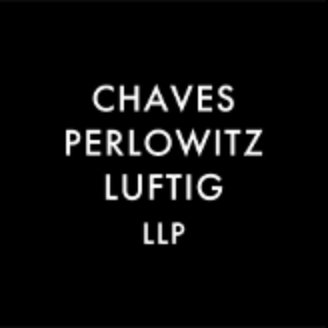DOWNLOAD POWERPOINT PRESENTATION HERE
 Regulatory Changes
Regulatory Changes
- NYS has issued a moratorium on all eviction proceedings through August 20th.
- NYC Housing Court is only accepting “essential applications” such as landlord lockouts, serious housing code violations, and repair orders.
- In addressing “essential applications”, judges will exercise judicial discretion in a manner designed to minimize court appearances and general traffic in the courts.
- While rent demands and 14-day non-pay notices can still be sent and served, you cannot purchase an index number and initiate a Court proceeding even after the 14-day notice expires. Nor can you serve the tenant with a petition to appear in Court.
- The idea here is that serving the 14-day notice gives you a head start when the Courts reopen and a landlord wants to start a nonpayment proceeding.
Senate Bill S1825
- Sponsored and introduced by State Senator Michael Gianaris, this bill proposes a 90-day freeze or suspension of all rent payments for tenants who have lost their jobs.
- In regard to commercial tenants, this bill proposes suspending payments for businesses which were forced to close due to the government mandate.
- The bill would also require a landlord to provide both residential and commercial tenants with automatic leases at the same rent rate for those leases expiring during this 90-day period (left unclear is the required duration of the leases).
- The bill is currently with the Senate Judiciary Committee.
NYS Tenant Safe Harbor Act
- Introduced on April 8th, this new legislation would add to Governor Cuomo’s 90-day moratorium on eviction by preventing landlords for evicting tenants due to non-payment of rent that accrued during the state of emergency which began on March 7th.
- The protected period would also cover rent payments which were not made for the six months following the conclusion of the state of emergency.
- Landlords can still seek monetary judgments for unpaid rent, however, evicting a tenant for failure to pay rent during this period would not be an option.
Amending or Revising the Lease Terms
- As different situations arise (tenant hardship, ownership change, scheduled move in/out, lease expirations) many landlords and/or tenants will find themselves in a position whereby they need to amend or revise the current terms of the lease.
- Regardless of whether you’re revising the rent amount, lease duration, or any other term, it is of utmost importance that both parties ensure that any amendments or revisions are formalized in a written agreement. Verbal agreements should not be relied on.
- It is also important to make sure amendments are made before the lease term expires which will allow Landlords to avoid having a tenant in a month-to-month or licensee situation.
Mortgage Payments
- Lenders at both the State and Federal level have been ordered to suspend mortgage payments for all homeowners who are unable to make payments due to COVID-19. The suspension would also include the waiver of late or online fees as well as no negative reporting to credit bureaus.
- Missed payments would be added to the back end of the mortgage period, thereby extending its term.
- Fannie Mae has stated they will suspend all mortgage payments for multi-family landlords who have suspended evictions for non-paying tenants.
Commercial Leases- Taxes
- Many commercial spaces are uniquely suited for a specific business (e.g. restaurant, laundromat, etc.).
- As such, the landlord is already restricted to a relatively small pool of potential tenants.
- One way to ease the tenant’s rental burden is to amend the portion of taxes the tenant is responsible for (where applicable) with the hope that the City issues an overall reduction.
David Goldfischer, Esq.
Direct: (212) 897-5691
Email: dzg@cpllawfirm.cwdevelop.com
DISCLAIMERS: Not legal advice. Instead, legal education. General overview and concepts. Many explanations of rules and concepts are simplified or have exceptions.

Chaves Perlowitz Luftig LLP is one of the most highly regarded real estate and estate planning firms in New York City. Our team of top-rated real estate attorneys and estate planning lawyers have extensive knowledge, resources, and connections to help you achieve your goals and plan for the future.
